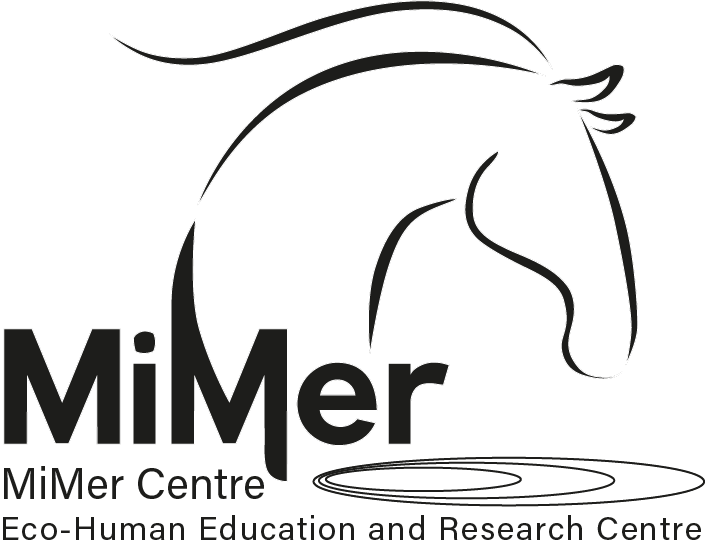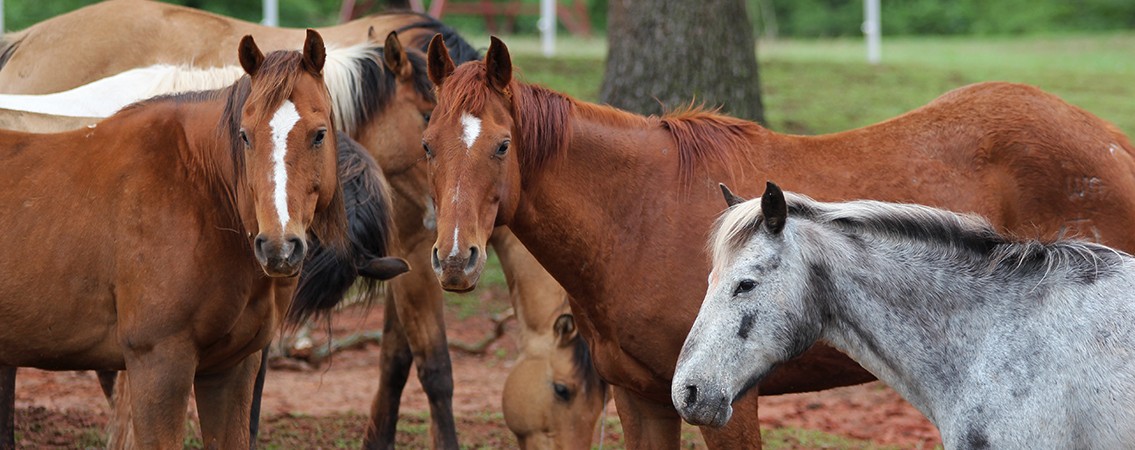Can horses get traumatized?
... or why I am not an EMHP (Equine Mental Health Practitioner) …
Yes. They can. Is the short answer.
The next question would be, do they get traumatized in the same way as humans? I am inclined to say no.
Why?
Because the horse mind is not the same as the human mind.
Horses and humans share much of their CNS (Central Nervous System), as all mammals do. This means we biologically react in similar ways to stress, and thereby to trauma. This we know from research on "animal models" (which is a nicer way to say that we do all the research we are not ethically allowed to do on humans, on animals instead and call them "models"). This means both horses and humans can react with flight, fight, freeze or please when they experience a traumatic or stressful event.
It means our physiological responses are similar. That our bodies react in similar ways to stress and trauma. But what about our minds?
Although both horses and humans have similar brains (and nervous systems), with similar structures – horses and humans perceive the world in different ways. This is tied to differences in how our brains have allocated resources to process perceived information. We have as species evolved very differently from each other. Think e.g. of the horse's eye and how it functions, in comparison with our human eye. We have as species adapted to thrive in different ecological niches.
We know very little about horse's minds. Actually, we know very little about minds. Period. We ask ourselves questions like; what is consciousness? What is personality? How do minds know and learn about other minds? We have theories about this, like the Theory of Mind (ToM), which was developed to explore if we can test if an individual has a sense of himself, as a being with his own mind. Which we test by see if an individual recognizes that the reflection in a mirror of himself – is himself – and nobody else.
I sometimes get the question if I think horses dissociate. And I used to answer yes. I have seen horses' eyes glaze over; they seem to disappear "inwards" as a reaction to a situation they do not want to be in. But I have thought some more and come to the conclusion (for now…) that they do not dissociate. I prefer to use the term learned helplessness for this phenomenon, or freeze, tonic immobility or frozen watchfulness (these terms have overlapping meaning).
This has to do with this separation I think we need to do between a being's brain (and the rest of their biology), and their mind. A being's brain and mind are of course intimately linked to each other but are not the same.
If horses dissociate, that would mean they have ego states? Inner children? Other terms to name parts of their personality – which then we could assume would make up their personality structure? This would also imply they suppress memories, events, parts of themselves? Because "malign" dissociation is a defense against the intolerable and unbearable part of someone's identity and thereby their personal history. It would imply a lot more – but I'll stop here.
What happens with horses if we put human constructs and ideas on to them to explain what happens to them, or goes on for them? Do we see them as they are, or does our understanding of them become thwarted? Are we looking at them trough lenses suitable for looking at humans, not other mammals (or other animals)? What does that do with our understanding of them? Our understanding of their species-specific uniqueness?
Did we, in the horse world, really think this trough properly? I didn't. Now I am. There is a lot to the human mind that does not exist in horses – or in any other species. Not because we are better than horses, or any other species, simply because each species are unique, have their own species-specific traits. All mammals have minds, having complex minds is a human trait, for better, and for worse. We can imagine things, hold different timelines in our minds at the same time, we have abstract thinking, etc – and a vulnerable mental health… Much of our vulnerable mental health is not about what happened to us – it is about what we think about what happened to us, it is about the constructs, thinking patterns, belief systems we form, the psychological defense systems we use to protect ourselves – these are typical human activities.
So – considering this – can horses (or any other mammal) develop ADHD? PTSD? Depression? Anorexia? Addiction? Do they dissociate, suppress memories? Have flashbacks? Suffer from panic attacks? Ruminate? Or are we doing them a huge disservice when we put/project these human phenomena on them? When we use terminology from the human psychology to describe what goes on for them when they deal with trauma and stress?
The somatic side of how to cure human trauma is very much in the center of attention right now. It is understandable that we get colored by that when we also look at other mammals and try to understand how they react to stress and trauma, especially if much of the research on the physiological side of stress and trauma reactions are done on our fellow mammals.
Following this – I am not an EMHP – because that would imply that they have the same problems with their mental health as humans have. And imo, they simply don't.
Which leaves the question that I started with in my last note here on fb, what to call myself when I work in EAP teams, as an Equine Professional (EP) with clients, horses and a human mental health practitioner. Equine Professional feels as such a vague word. But I think it will have to do for now…
When you subscribe to the blog, we will send you an e-mail when there are new updates on the site so you wouldn't miss them.


Comments 2
Very good article. As with human mental health, often empathy is both the 'cure' and the mechanism for 'diagnosis', while eliminating background conditions prevents such as impacts both horses and humans.
Thank you
With all due respect, I do not believe that this article is correct. We have learned so much recently about the nervous system and polyvagle theory, that I think it is now quite understandable that horses do disassociate. I am a certified equine practitioner of the Trust Technique and I know through my work that horses do diassociate and can process old traumas that have been stuck in their bodies. I am excited that the science is catching up and soon we will understand that lots of animals hold trauma and can process it.